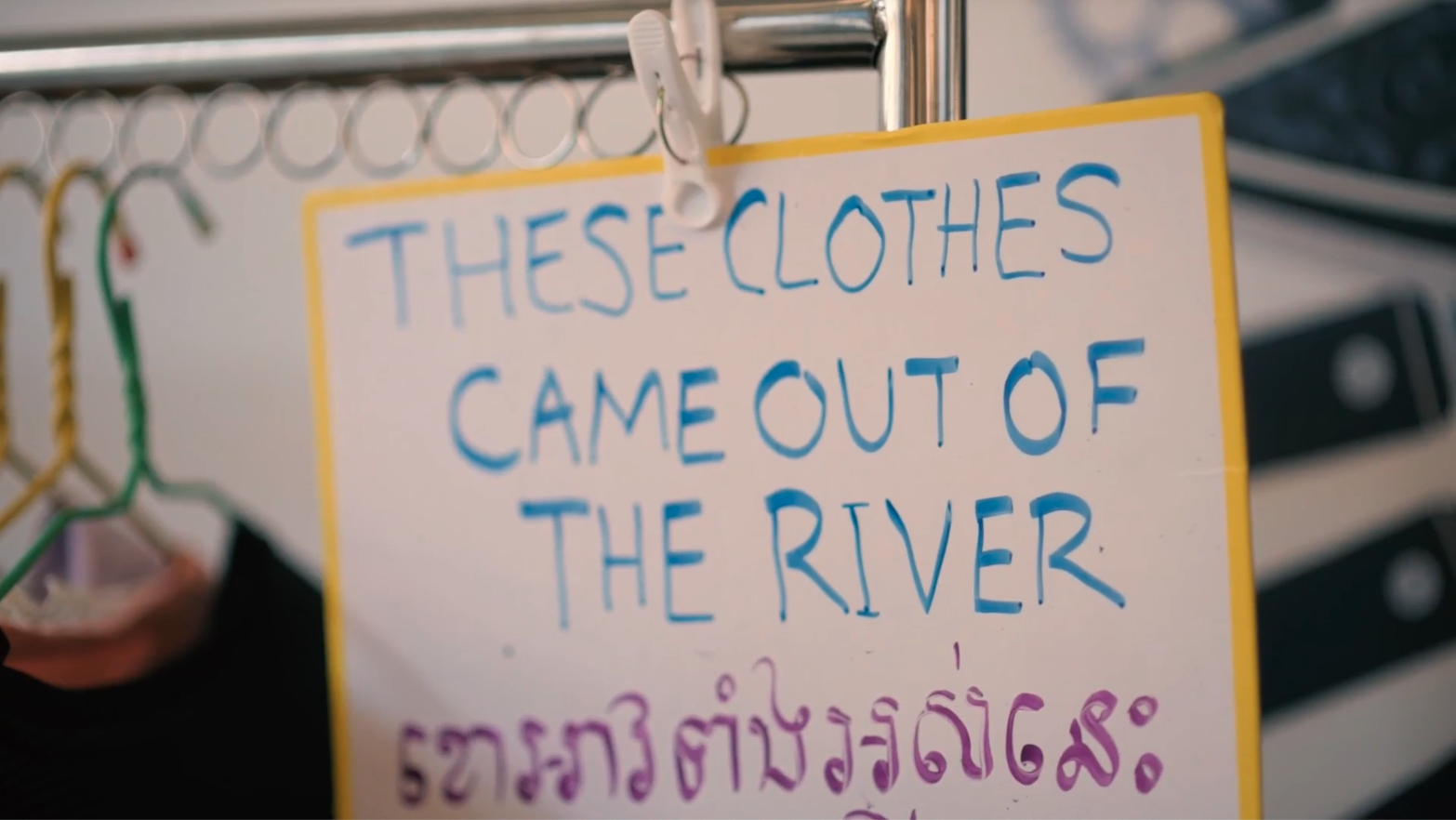

“Cheap Clothes Come At a Price”
IIE Centennial Fellow Alyssa Kardos Loera Aims to Reduce Textile Waste and Empower Khmer Designers in Cambodia
March 27, 2024
Alyssa Erin Kardos Loera, IIE Centennial Fellow 2023-2024
Cambodia, like in many parts of the world, faces increased vulnerabilities due to climate change, including more frequent droughts and intense flooding, which has damaged or destroyed homes and interrupted rice and other agricultural production. In addition, recent reports have found that international textile waste is contributing to work conditions that leave Cambodian laborers ill. Inspired to take action, Georgetown University alumna Alyssa Kardos Loera earned a Fulbright English Teaching Assistant grant to create ReMade, a locally-focused enterprise to both upcycle leftover textiles and support local fashion designers. In her first blog entry of the year, Kardos Loera provides an update on her business since accepting the fellowship.
What inspired you to take on textile waste?
My journey with sustainable fashion and textile waste began when I was young. I loved thrifting loved ones’ old garments and helping to run community clothing drives. Nothing quite compares to stumbling upon that vibrant, one-of-a-kind top. And when one of these unique pieces would get a tear or stain, my mother and grandmother showed me how to clean or repair them. These secondhand pieces were more than just items of clothing; for me, they offered affordable fashion, empowered me to express my individuality, and carried stories and connections to my family and community.
I developed a deep interest in upcycling and the environmental and social impact of textile waste when I spent a term in college volunteering in Spain. I learned that clothes that don’t find a home often create mountains of discarded clothing across continents in countries such as Ghana, Kenya, and Chile. This excess not only contributes to pollution in our rivers and oceans but also remains largely unknown to the broader public. Discovering this hidden aspect of fashion was pivotal, prompting me to reassess the broader environmental implications of our consumer habits and the urgent need for sustainable alternatives.
My exploration into the world of textile waste and fashion has been much like pulling on a loose thread on a sweater. As I unravel one issue, I discover systemic, profound disparities inherent in the design, production, and consumption dynamics of the global fashion industry.“
Alyssa Erin Kardos Loera
During my Fulbright English Teaching Assistantship in Cambodia, I initiated ReMade in Cambodia, a project aimed at addressing this issue while promoting local Khmer designers.
Tell us about your IIE Centennial Fellowship project.
With the backing of the IIE Centennial Fellowship, ReMade in Cambodia is expanding its efforts. Through ReMade, the enterprise I formed after my assistantship, I aim to create Cambodia’s pioneering upcycling center, engaging the local community and promoting Khmer designers’ upcycled fashions. Our first upcycled fashion show garnered significant attention and support, leading to collaborations with the Wildlife Conservation Society and everwave, a waste management startup. Together, we raised awareness about textile waste and supported local designers. In the next year, our goal is to further expand our impact by organizing our third fashion show, themed around endangered birds in Cambodia, and by establishing the upcycling center to provide essential services and support to the community.
Our upcoming initiatives include forming and staffing the upcycling center, focusing on textile waste processing, research, community education, and designer development. Through these efforts we aim to create sustainable solutions while empowering local communities.
What’s next?
All this will result in Pteah ReMade, where waste finds purpose and communities are empowered through transformative initiatives.
Pteah ReMade is a groundbreaking initiative by ReMade in Cambodia aimed at transforming textile waste into opportunities for environmental sustainability, community engagement, and economic empowerment. Situated at the nexus of ecological consciousness and creative innovation, our upcycling center is designed to address various facets of the textile waste challenge and underrepresentation of young designers in our community.
Our activities are designed to tackle various aspects of the textile waste challenge and support the development of young designers in the community:
- Textile Waste Processing: We will collect and resell discarded textiles, reducing waste in rivers and communities. Specializing in transforming textile waste into valuable resources through innovative techniques, our upcycled product lines will provide work opportunities in the green economy.
- Research: We will conduct comprehensive research to understand the composition and branding of textile waste, enabling the development of effective strategies for waste reduction and management.
- Community Education: Through our clothing services, we will provide essential support to the community, including repair, upcycling, and clothing swaps. Our workshops will offer educational opportunities and skills development, empowering individuals to make informed choices about fashion consumption and participate actively in the circular economy.
- Designer Development: Committed to nurturing emerging talent in sustainable fashion design, our initiatives include supporting young designers and offering training programs in sustainable design practices, ensuring a vibrant and inclusive fashion ecosystem in Cambodia.
Pteah ReMade is not just a center for upcycling; it’s a hub of creativity, innovation, and social impact. By repurposing textile waste and fostering sustainable practices, we contribute to mitigating climate change and creating a more environmentally conscious future.
Hear more from Alyssa below:
Named in honor of IIE’s Centennial and association with the Fulbright Program, the IIE Centennial Fellowship seeks to help enhance Fulbright as a life-long experience and recognize alumni whose work embodies the program’s underlining values of mutual understanding, leadership, global problem solving, and global impact.